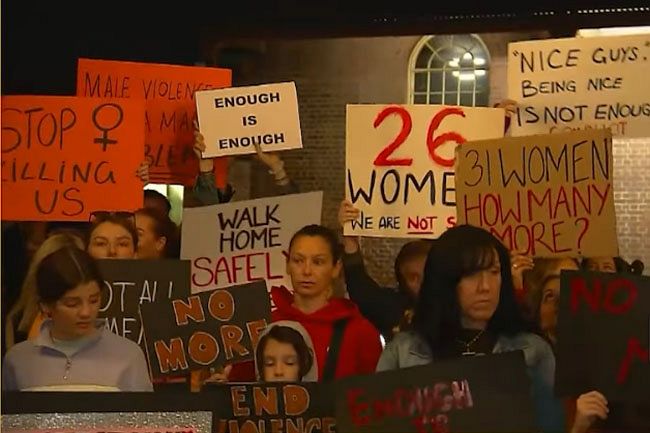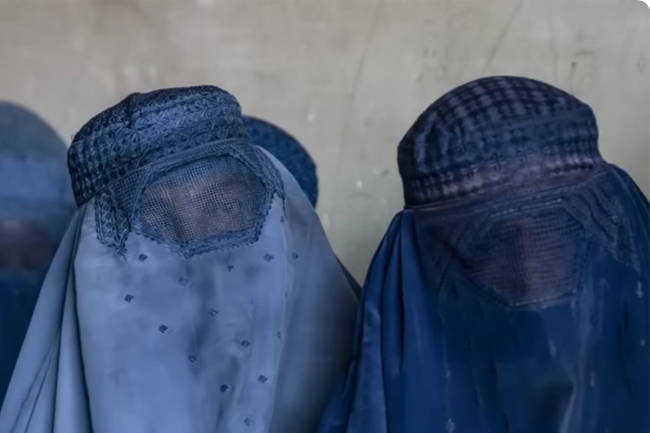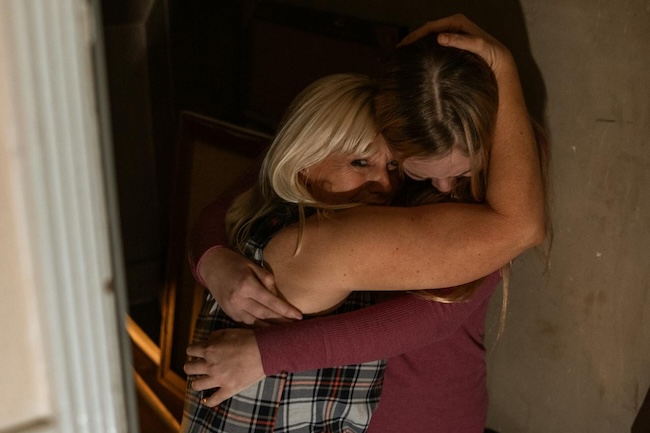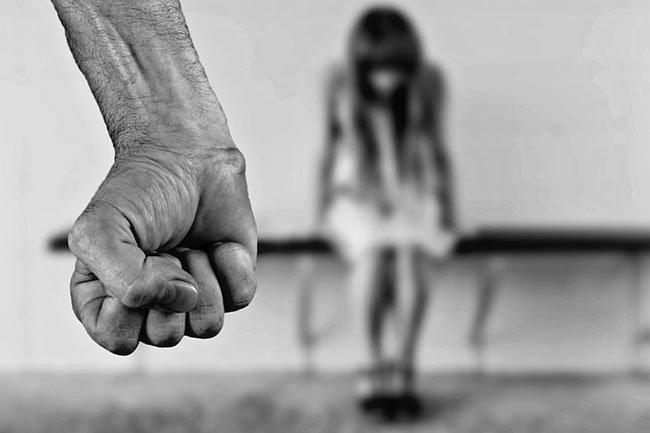While Australia boasts of being a progressive nation, the problem of violence against women continues to shame us, writes Johanna Higgs.
HAILING FROM PERTH, Western Australia, at just 19 years old, I knew that all I wanted to do was travel and see the world. Not wanting to waste any time, I booked a one-way ticket to London and the next 20 years have been filled with adventures throughout many varied and diverse corners of our world.
I have travelled through small villages in the Brazilian Amazon, bustling cities in Indonesia and across the Mongolian desert. I have traversed the Yemeni desert, navigated the steaming jungles of Nicaragua and spent time with matrilineal tribes in China. I have visited small country towns in Tajikistan, got stuck in election violence in Gabon and travelled on top of a truck across “bandit” country in Kenya.
I have stayed in slums in Senegal, small soviet villages in Uzbekistan and beach towns in Madagascar. I have visited villages in Afghanistan, interviewed Syrian refugees in Lebanon and spent time with female Peshmerga soldiers in Iraq. I currently live in Cambodia with 36 animals I have rescued from the street.
From the stunning cities of Europe to the glorious islands throughout the Indian Ocean and the almighty desert of the Sahara, the world has shown me that it has an incredible amount of diversity to offer.
However, despite its many charms and wild variety, I have most certainly discovered that many aspects of our world are not nice at all. Be it Africa, Latin America, Asia or Europe, while incredibly different from each other, they do share some commonalities.
That is violence and discrimination against women and girls.
Wherever I have gone in the world, women and girls always seem to be subject to some form of violence and discrimination and it always seems to be a tolerated and accepted part of daily life. It could be honour killings or bride burnings, forced and early marriages. It could be female genital mutilation, not allowing girls to go to school or not allowing women into the public space.
There are also, of course, the “classics” — sexual harassment, rape, domestic violence — and let’s not forget the traditional claims of female inferiority.
Angered by what I learned on my early travels around the world and having been subject to much discrimination and harassment myself, I decided to do something about it. I initiated a women’s rights organisation called Project Monma which aims to generate knowledge and evidence on the many different forms of violence and discrimination against women and girls around the world through research and advocacy.
My work with Project Monma has led me to small villages in Afghanistan to understand what challenges women and girls face, to Madagascar to investigate human trafficking and to Mozambique to learn more about the phenomenon of “sex for grades”.
I travelled to the Maldives to understand how the country’s shift away from democracy was affecting women and Lebanon to understand more about the experiences of Syrian women refugees. In Mauritania, I investigated the horror facing women and girls who are victims of descent-based slavery.
In northern Vietnam, I learned many young women and girls are tricked and sold to be wives in China. In Iraq, I was told that just the simple act of falling in love as a woman outside of marriage could result in the death penalty, with the murderers being her family members. In Colombia, they told me that sexual harassment is “part of the culture”.
In fact, everywhere I’ve gone in the world, men have tried to claim that routinely and obsessively publicly degrading women in a sexual way is their “culture”.
Virginity is a big issue around the world. Men don’t need to be one; women do, apparently. In other words, men have the right to be sexual while women don’t. For women who traverse these boundaries of sexual rights, the consequences are often severe and can result in severe social stigmatisation or, even worse, death.
Part of this, as I have so uncomfortably learned, is that Western women are drastically stigmatised around the world because of our rights to have boyfriends, our rights to not be a virgin before marriage and our rights to change partners as we so desire. As I have discovered, we are called “whores” for having these rights even though globally, men demand such rights for themselves.
When is this extreme hypocrisy and wildly barbaric behaviour towards women and girls going to stop? When are we going to demand to know why so many men around the world feel justified in being so violent towards women and girls and why on Earth we as a global community are accepting it?
As I look back home to Australia with the mass protests against violence against women, a country that I have always thought was pretty good for women, I feel shocked to learn that, in fact, we are not much better than the rest of the world if we are allowing our women to beaten, harassed and killed.
I’ve always felt proud to be an Australian but part of that pride has come with being able to say with confidence that in our country, our men stand up to protect women — they don’t beat and kill them. I have felt proud to say that sexual harassment and violence are most certainly not our “culture”, and rather than being perpetrators, our men are protectors.
I have declared that our men are strong and confident enough in themselves not to need to hurt women as a way of dealing with their own insecurities, and I have always felt so proud that we, as Australians, have built a culture where women and girls can feel free to go into any public space without fear.
However, while we are seeing women being murdered, women running from abusive partners or complaining about sexual harassment, I find that pride wavering.
Being a proud Australian should always, always incorporate our value of absolutely no tolerance for any kind of violence towards women and girls, a value that I most certainly grew up with. This should include ensuring that perpetrators are not only properly punished by the law but are duly shamed by society.
We must insist on this because, at least in the Australia that I know, we are a country that values progression, civility and fairness.
Let's stop all forms of violence against women and girls now.
Johanna Higgs is an anthropologist and founder of Project MonMa, which advocates for women’s rights around the world.
Related Articles
- Escaping the clutches of domestic violence
- Poor protection for Cambodian women adds insult to injury
- Political talk of women's safety reeks of hypocrisy
- Depp v Heard and the "mutual abuse" argument
- Australia's Family Court system failing to protect children
 This work is licensed under a Creative Commons Attribution-NonCommercial-NoDerivs 3.0 Australia License
This work is licensed under a Creative Commons Attribution-NonCommercial-NoDerivs 3.0 Australia License
Support independent journalism Subscribe to IA.















